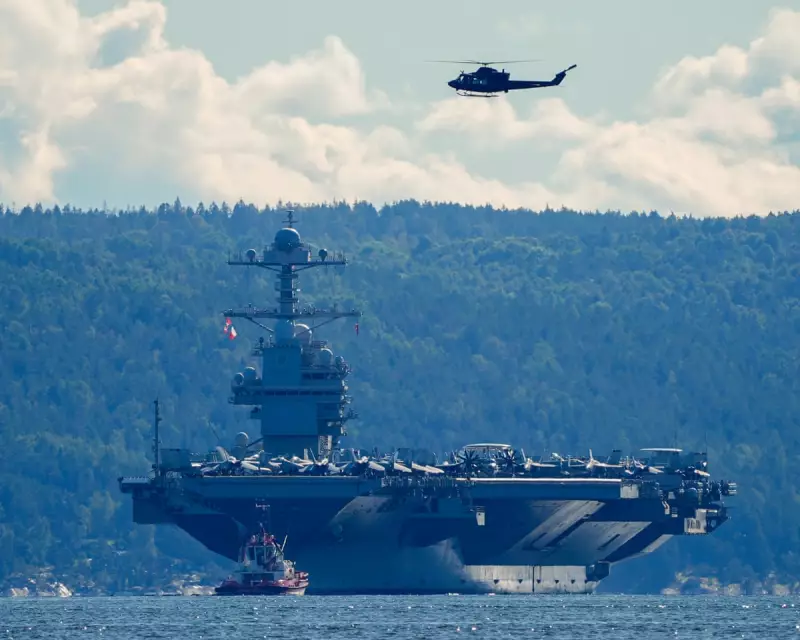
In a move that has sent shockwaves through diplomatic circles, former President Donald Trump has allegedly orchestrated the redeployment of one of America's most powerful naval assets – the nuclear-powered USS Gerald R. Ford aircraft carrier – to Caribbean waters.
Unprecedented Civilian Intervention
According to multiple sources, Trump personally directed the massive warship's change of course, bypassing traditional military command structures. The Ford-class carrier, representing the pinnacle of US naval technology, was reportedly en route to scheduled exercises when the order came through.
This extraordinary intervention raises fundamental questions about civilian control of military assets, particularly when involving a former commander-in-chief no longer holding official office.
Regional Implications and Reactions
The sudden appearance of America's newest and most advanced aircraft carrier in Caribbean waters has not gone unnoticed by regional powers. Neighbouring nations are understood to be seeking urgent clarification from US authorities about the vessel's mission and duration of stay.
- Diplomatic sources describe the move as "highly unusual"
- Questions mount about the legal authority for such redeployment
- Regional stability concerns emerge among Caribbean nations
A Pattern of Controversial Military Engagement
This incident follows Trump's long-standing pattern of utilising military assets in ways that break with convention. During his presidency, he frequently employed warships and military parades as symbols of American power, often to the concern of defence officials who preferred maintaining strategic ambiguity.
"The deployment of a carrier strike group is never a casual decision," noted a former naval commander. "These movements are carefully choreographed to send specific messages to allies and adversaries alike."
Legal and Constitutional Questions
Legal experts are divided on whether a former president retains any authority to influence military deployments. While Trump maintains significant political influence, his current civilian status places this intervention in uncharted legal territory.
- What legal precedent exists for former presidents directing military assets?
- How does this affect current administration foreign policy?
- What message does this send to international partners?
The White House has yet to issue an official statement regarding the carrier's redeployment, though sources indicate administration officials are closely monitoring the situation.
Strategic Significance of Caribbean Waters
The Caribbean has long been considered America's "third border," with the US Navy maintaining a consistent presence in the region. However, the deployment of a flagship carrier represents a significant escalation in military posture.
This development comes amid increasing great power competition in Latin America, with both China and Russia expanding their influence in the region through economic partnerships and security agreements.
As the situation develops, defence analysts will be watching closely to see whether this represents a temporary demonstration of power or the beginning of a more sustained strategic shift in US naval policy.





